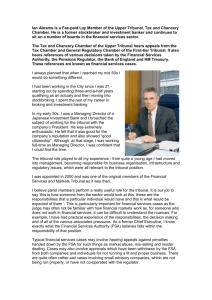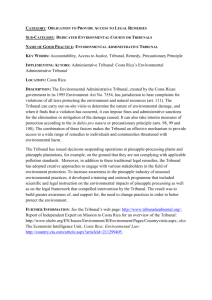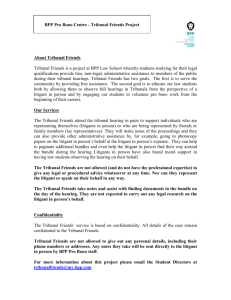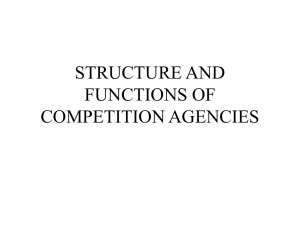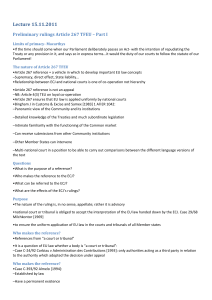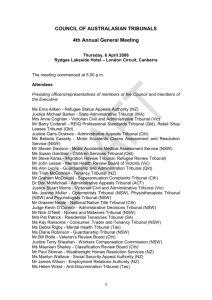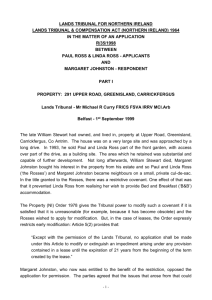002_job_description - Judicial Appointments Commission
advertisement
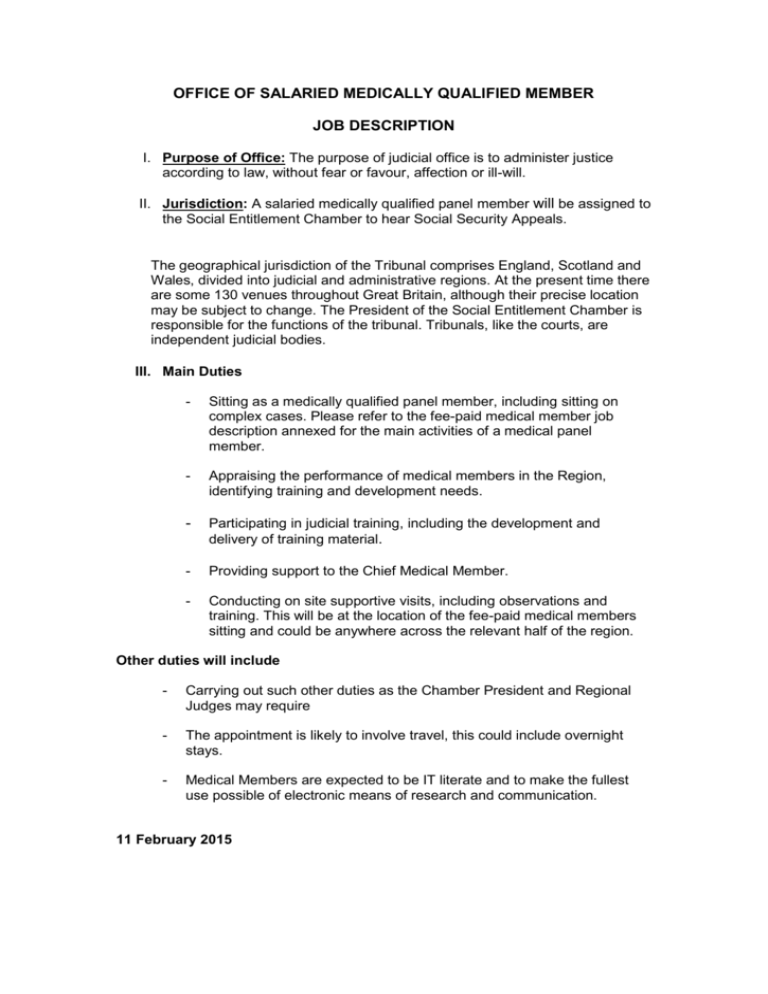
OFFICE OF SALARIED MEDICALLY QUALIFIED MEMBER JOB DESCRIPTION I. Purpose of Office: The purpose of judicial office is to administer justice according to law, without fear or favour, affection or ill-will. II. Jurisdiction: A salaried medically qualified panel member will be assigned to the Social Entitlement Chamber to hear Social Security Appeals. The geographical jurisdiction of the Tribunal comprises England, Scotland and Wales, divided into judicial and administrative regions. At the present time there are some 130 venues throughout Great Britain, although their precise location may be subject to change. The President of the Social Entitlement Chamber is responsible for the functions of the tribunal. Tribunals, like the courts, are independent judicial bodies. III. Main Duties - Sitting as a medically qualified panel member, including sitting on complex cases. Please refer to the fee-paid medical member job description annexed for the main activities of a medical panel member. - Appraising the performance of medical members in the Region, identifying training and development needs. - Participating in judicial training, including the development and delivery of training material. - Providing support to the Chief Medical Member. - Conducting on site supportive visits, including observations and training. This will be at the location of the fee-paid medical members sitting and could be anywhere across the relevant half of the region. Other duties will include - Carrying out such other duties as the Chamber President and Regional Judges may require - The appointment is likely to involve travel, this could include overnight stays. - Medical Members are expected to be IT literate and to make the fullest use possible of electronic means of research and communication. 11 February 2015 Annex JOB DESCRIPTION FEE-PAID MEDICALLY QUALIFIED MEMBER, FIRST TIER TRIBUNAL CHAMBER, SOCIAL ENTITLEMENT CHAMBER The Social Entitlement Chamber of the First Tier Tribunal hears appeals relating to a wide variety of benefit decisions made by central and local government. Whilst every tribunal includes a Tribunal Judge (who may be a salaried judge or a solicitor or barrister who sits on a fee-paid basis), the composition of each individual tribunal is determined by the nature of the appeal. Many appeals involve medical issues, and these will be heard by a tribunal which includes a medical practitioner, and in some cases, also a member with particular knowledge of disability issues. Appeals heard by a tribunal which includes a doctor are those relating to: Disability living allowance and Personal Independence Payments Employment & support Allowance / incapacity benefit Benefit for industrial injury or disease Recovery of benefit from compensation for injury, and recovery of NHS charges Vaccine damage payments (although these are uncommon) Appeals for claims under the Mesothelioma schemes Allocation to sit on cases involving industrial injury or disease is usually limited to those medical practitioners possessing relevant specialist knowledge such as orthopaedic surgeons, neurologists, rheumatologist’s chest physicians and specialists in occupational health. Main Activities The Tribunal has an inquisitorial function. The main activities of a medically qualified member are:Preparing for a hearing Reading and assimilating appeal papers before the hearing commences, including on occasions the study of substantial amounts of complex documentary evidence. Such preparatory work is necessary regardless of whether the appellant has opted for an oral hearing of the appeal or it is to be determined on the basis of the appeal papers alone. In particular, the medically qualified member will be expected to use his or her professional expertise to analyse the medical evidence provided and to advise other members of the tribunal. Determination of appeals In conjunction with the Tribunal Judge and (where appropriate) the other tribunal member, deciding appeals by considering facts, applying the relevant law to them and where required, contributing to the giving of a reasoned written judgement by the Tribunal Judge. In some cases relating to industrial injury or disease, it may be necessary for medical members to carry out a medical examination at the hearing. Conduct of Hearings In conjunction with other members, ensuring that hearings are conducted efficiently and effectively in a manner which is compatible with the interests of natural justice. Availability Medical members are required to be available to sit for a minimum of 15 days a year and to attend up to 3 training days in addition. Many members currently sit at levels significantly higher than the minimum, but are free to decline to do so should other commitments make this impracticable. Conflicts of interest. All of those appeals which require the presence of a medical member on a Tribunal arise from decisions made by the Department of Work and Pensions. Most include medical reports prepared by doctors engaged either by the DWP or by ATOS on behalf of the DWP. Following the decision in Secretary of Work and Pensions v. Cunningham [2004] Scot CS 211, the tribunal is unable to deploy medical members who are or who have recently been regularly engaged in the preparation of such reports, in any location where either their own reports may fall to be considered by the tribunals where they themselves sit, or where other judicial office holders with whom they have previously sat may have to consider such reports. Any such candidate must be able to demonstrate that their particular circumstances (for example by reason of having moved home and seeking appointment geographically distant from the area where the examinations were carried out) are such that the above limitations on their deployment is of no relevance. Clinical experience A licence to practise (as distinct from registration with the GMC) is not a requirement of appointment, but candidates should have experience of clinical practice and, must be able to demonstrate relevant up to date knowledge.

